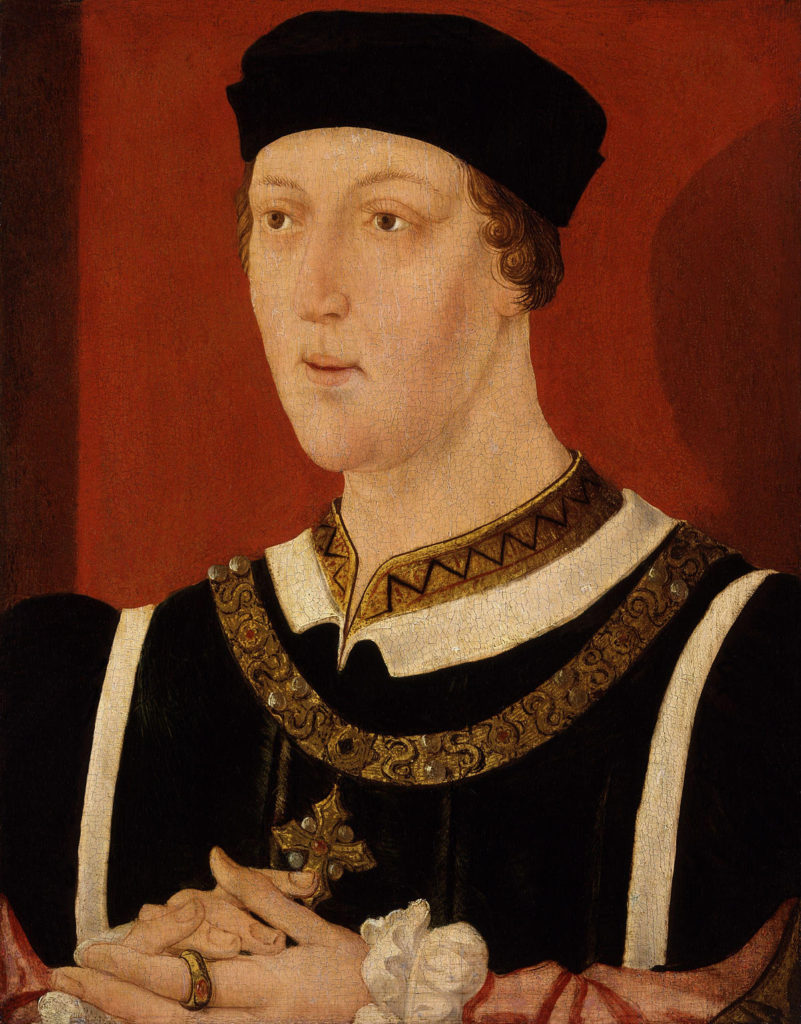
“This baby must be a son – this is what my vision is telling me. My son will inherit the throne of England. The horror of war with France will be ended by the rule of my son. The unrest in our country will be turned into peace by my son. I shall bring him into the world, and I shall put him on the throne, and I shall guide him in the ways of God that I shall teach him. This is my destiny: to put my son on the throne of England, and those who laughed at my vision and doubted my vocation will call me My Lady, the King’s Mother. I shall sign myself Margaret Regina: Margaret the queen.”
– Margaret Beaufort in the “Red Queen” by Philippa Gregory
It’s a brilliant book. If you haven’t read it, I strongly recommend you do.
It’s also a book that reminds us how powerful fiction is. Since this book, and the “White Queen” TV series that is partially based on it, public perceptions of Margaret have shifted starkly.
Margaret is no longer the shrewd elder stateswoman who sensed an opportunity for her son. No longer is she the sage advisor who gently guided her boy and his wife in the early years of their fragile reign.
Instead, she is the fanatic. The woman that fought her whole life to put her son on the throne. And in doing so, she was fuelled by a belief that she was in partnership with the almighty himself.

It’s the basis of a great storybook. But it’s a questionable way of doing history.
Henry VII, Margaret Beaufort’s son, owed his mother a great debt. It was she who sensed an opportunity for him as Richard III’s rule quickly crumbled. It was she who negotiated Henry’s marriage to Elizabeth, the Yorkist heiress. And it was she who attracted early supporters to the Tudor banner.
But if she really believed from birth that he was destined for the throne, she had a funny way of showing it.
Here are just three reasons why it’s unlikely Margaret had such hopes for her son before 1483.
- If anyone ever thought Margaret had a claim to the throne, it was dismissed in 1449
During her childhood, Margaret’s guardian was the Duke of Suffolk, a powerful minister and a man with enemies.
No doubt with an eye on Margaret’s fortune, Suffolk “married” his charge to his own son, John. The Duke’s enemies deliberately misconstrued this. Among other charges, Suffolk was accused in Parliament of plotting:
“to destroy your most royal person [Henry VI] and your true subjects of the same realm; with the intention of making John, son of the same duke [of Suffolk], king of this your said realm, and to depose you from your high regality of the same; the same duke of Suffolk then having of your grant the wardship and marriage of Margaret, daughter and heir of John, late duke of Somerset, proposing to marry her to his said son, claiming and pretending her to be the next to inherit the crown of this your realm.”
The claim was clearly bogus. Suffolk had no interest in putting his own lad on the throne. But it has given rise to speculation that Margaret, who was possibly the primogeniture heiress to the then childless Henry VI, was considered a claimant to the crown.
This seems unlikely. By Suffolk’s critics claiming he was “pretending her to the next to inherit the crown”, Parliament was effectively rubbishing the notion that Margaret was close to the royal dignity. They were trying to present Suffolk as a grubby little upstart who would grasp at whatever straws were in reach.
And Suffolk was equally quick to dismiss Margaret’s claim. When defending himself he was clear that suggesting Margaret was next in line was “contrary to law and reason.”
Given Margaret’s own claim had been so publicly rejected less than a decade before, it would be very odd indeed if she held hopes for her newborn son. Especially as by this stage Henry VI had produced a boy of his own.
2. Margaret was loyal to Henry VI and his son. She didn’t consider her boy a rival to them.
We will never know Margaret’s inner feelings during the wars of the roses. But we can have a pretty good guess.
The Beaufort cause was intrinsically tied up with that of the house of Lancaster. They were close kin and the Beauforts had been the most stringent supporters of their mainline cousins. Margaret’s sympathies almost certainly lay with her Beaufort cousins and Lancastrian kin.
When Margaret did rise to power, as the mother of the King, she celebrated the memory of Henry VI and campaigned for him to be recognised as a saint. This might, in part, have been an attempt to emphasise her Lancastrian heritage and build credibility for the new Tudor regime. But it was more than that. Margaret had likely always been a great supporter of the pious King. She would have extended that loyalty to his son. Not seen her own boy as a rival.

3. She campaigned for her son to be reconciled to the house of York, not an opponent to it
After the Lancastrian defeat of 1471, Margaret made her peace with Edward IV. He too was her cousin. And now undisputedly King of England. Margaret got closer to his court and seems to have achieved a degree of prominence. She quietly worked behind the scenes to see her son restored to his title and returned to England. It nearly worked. Had Edward not suddenly died in 1483, Henry would almost certainly have been restored to the title “Earl of Richmond” and welcomed home. Albeit without a major landed settlement.
If Margaret was secretly preparing the way for her son’s Kingship, she did a good job of hiding it.
*
There is not a shred of evidence that Margaret ever thought her son could be King of England until it was obvious that the Princes in the Tower were dead and that Richard III’s regime was unstable.
True, she would later claim that a vision from God prompted her to marry Edmund Tudor. This way of making sense of the world was more common then and no doubt Margaret did look back at her life and detect the hand of destiny in her family’s ultimate success. Everyone in the fifteenth century believed in the will of God.
Margaret didn’t want Kingship for her son. Why would she? In a “wars of the roses” world, being King was a risky business. It’s a myth that most nobleman secretly sought the job. What she wanted for her son, and for herself, was safety and prosperity. Unexpectedly in 1483, the crown suddenly became their best chance for both.
Subscribe to our newsletter!

Elizabeth was barely 12 years of age when she was married to Edmund Tudor and 13 when she had Henry. Reports say that the birth was traumatic and her survival and that of Henry could have registered the thought of “divine’ intervention in this young girl. She was always aware of her legacy from John of Guant (son of Edward lll) and Katherine Swainford, the mistress he married thereby legitimising their Beaufort progeny. Though Richard ll decreed no Beaufort had a right to the throne. The connection to the Tudors is tenuous at best – only through Owen Tudor’s supposed marriage to Catherine de Valois. But history does tend to support her as being highly intelligent and very astute so who knows her actual agenda?